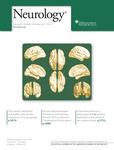 The news that Prof. C N R Rao has been awarded the Bharat Ratna should be warmly welcomed in our University. After all he is one of ours, being conferred an honorary doctorate of the University in 2005. And importantly, he has been a mentor, directly or indirectly to many of our colleagues in various science faculties at the UoH.
The news that Prof. C N R Rao has been awarded the Bharat Ratna should be warmly welcomed in our University. After all he is one of ours, being conferred an honorary doctorate of the University in 2005. And importantly, he has been a mentor, directly or indirectly to many of our colleagues in various science faculties at the UoH.
 He was on the faculty- one of the biggest stars of the stellar Department of Chemistry- at IIT Kanpur where I did my M. Sc. (Chemistry) in 1974. Actually, he was on the interview panel that selected me for admission in 1972 – no entrance exams then- and although I then did not know who he was, I can still remember one question he asked me then: How many molecules of water are there on earth? It was a serious enough question, and as I was grappling with estimating volumes, dividing by 18, multiplying by Avogadro’s constant and doing all that I could to come up with an answer, he added: When its not raining!
He was on the faculty- one of the biggest stars of the stellar Department of Chemistry- at IIT Kanpur where I did my M. Sc. (Chemistry) in 1974. Actually, he was on the interview panel that selected me for admission in 1972 – no entrance exams then- and although I then did not know who he was, I can still remember one question he asked me then: How many molecules of water are there on earth? It was a serious enough question, and as I was grappling with estimating volumes, dividing by 18, multiplying by Avogadro’s constant and doing all that I could to come up with an answer, he added: When its not raining!
I took Physical Chemistry from him the next year- he was an inspiring teacher in many ways- and over the years I have stayed in touch with him enough to be very very impressed by his tenacity and his passion for science. In Kanpur when he was already famous and had nucleated the Department of Chemistry, he was just about 40. That he has stayed current and obsessed with his science for the next four decades (and this shows no sign of abating) is phenomenal.
But the news of the Bharat Ratna to him is welcome in many many ways. It is, as he says, also a recognition of the value of science, of scholarship, of research. Having seen the institutions he has built, one could give it for that alone. And CNR does not mince his words- he is an outspoken advocate for research, and has let government after government know that funding for science is inadequate. As we all recognize only too well, funding for higher education is inadequate, and our only hope for excellence is that we get funded at reasonable levels. In the past two days alone, he has raised the sensibility of not just the political class, but indeed the public at large of the need for funds, for support. We need more champions like him.

 Professor Bapiraju (of the School of Computer and Information Sciences and Coordinator of CNCS) wrote in to tell me that the article in the journal Neurology (the medical journal of the American Academy of Neurology) that went online yesterday was the product of collaboration among CNCS, NIMS and Osmania University, as part of a Cognitive Science Initiative project funded by the Department of Science and Technology. The full list of authors of the paper, Bilingualism delays age at onset of dementia, independent of education and immigration status, are Suvarna Alladi, Thomas H. Bak, Vasanta Duggirala, Bapiraju Surampudi, Mekala Shailaja, Anuj Kumar Shukla, Jaydip Ray Chaudhuri, and Subhash Kaul, Anuj Shukla being an M. Phil. student of the Centre, while the other authors are at NIMS, OU, and Edinburgh.
Professor Bapiraju (of the School of Computer and Information Sciences and Coordinator of CNCS) wrote in to tell me that the article in the journal Neurology (the medical journal of the American Academy of Neurology) that went online yesterday was the product of collaboration among CNCS, NIMS and Osmania University, as part of a Cognitive Science Initiative project funded by the Department of Science and Technology. The full list of authors of the paper, Bilingualism delays age at onset of dementia, independent of education and immigration status, are Suvarna Alladi, Thomas H. Bak, Vasanta Duggirala, Bapiraju Surampudi, Mekala Shailaja, Anuj Kumar Shukla, Jaydip Ray Chaudhuri, and Subhash Kaul, Anuj Shukla being an M. Phil. student of the Centre, while the other authors are at NIMS, OU, and Edinburgh.

